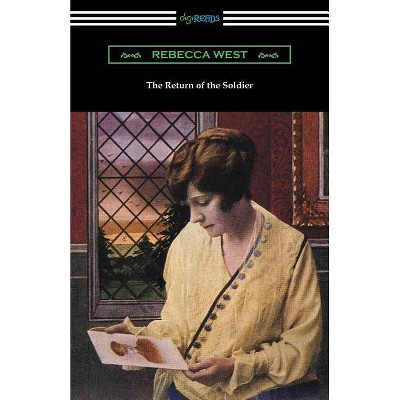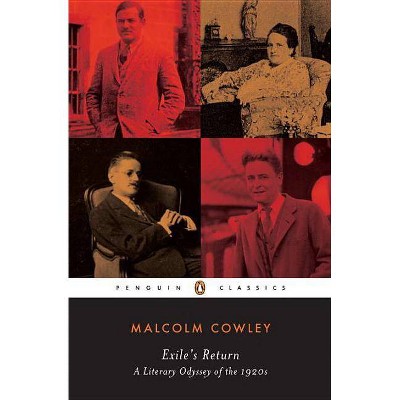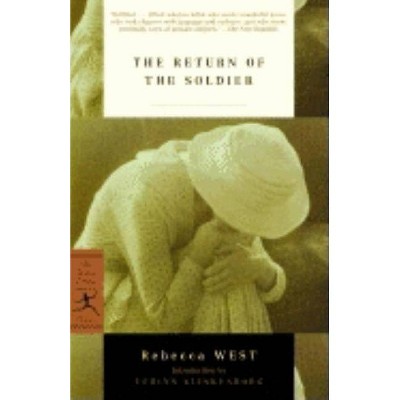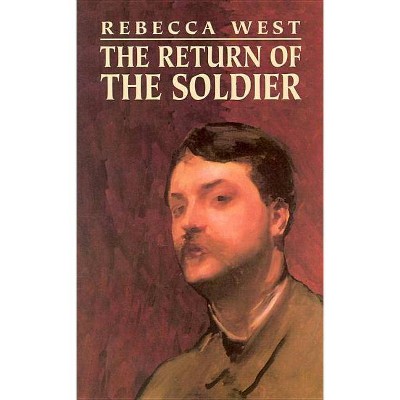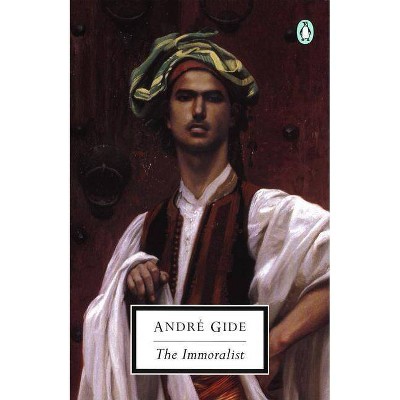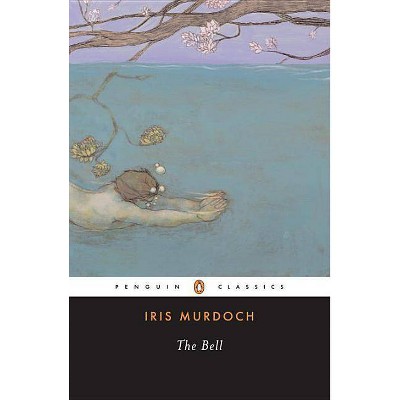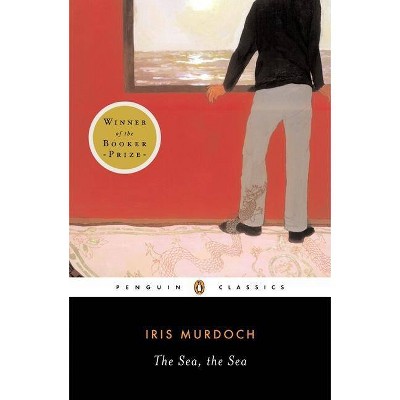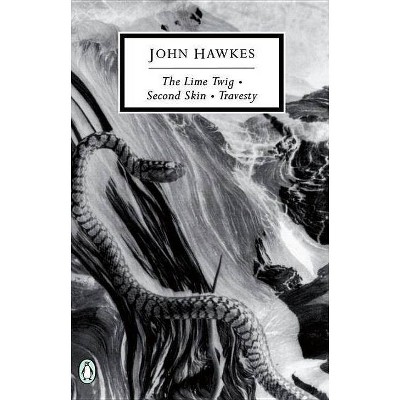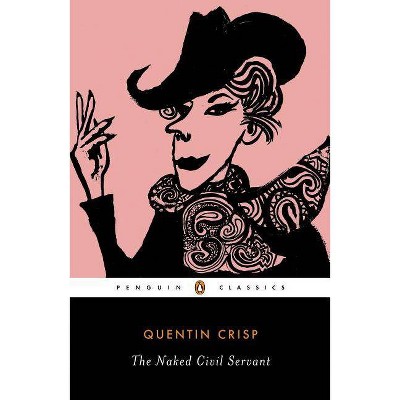The Return of the Soldier - (Penguin Twentieth-Century Classics) by Rebecca West (Paperback)
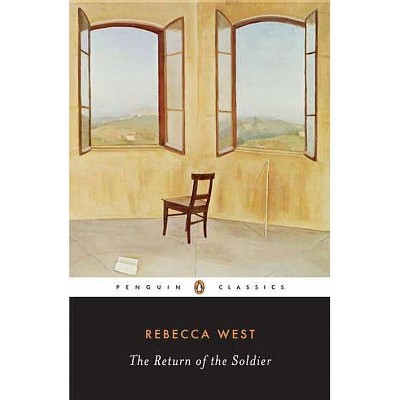
Similar Products
Products of same category from the store
AllProduct info
<p/><br></br><p><b> Book Synopsis </b></p></br></br>Writing her first novel during World War I, West examines the relationship between three women and a soldier suffering from shell-shock. This novel of an enclosed world invaded by public events also embodies in its characters the shifts in England's class structures at the beginning of the twentieth century. <p/>For more than seventy years, Penguin has been the leading publisher of classic literature in the English-speaking world. With more than 1,700 titles, Penguin Classics represents a global bookshelf of the best works throughout history and across genres and disciplines. Readers trust the series to provide authoritative texts enhanced by introductions and notes by distinguished scholars and contemporary authors, as well as up-to-date translations by award-winning translators.<p/><br></br><p><b> From the Back Cover </b></p></br></br>World War I, in the background of Rebecca West's first novel, was "the first war that women could imagine", writes Samuel Hynes in his eloquent introduction, "and so it was the first that a woman could write into a novel". Narrated by a woman who, like West, has never experienced war and yet for whom the war was very real, The Return of the Soldier (1918) takes place not on a battlefield, but in an isolated country house. It examines the relationships between three women and a soldier suffering from shell shock. This novel of an enclosed world invaded by public events also embodies in its characters the shifts in England's class structures at the beginning of the twentieth century, as well as the choice between the romantic past and the horrifying present, between love and reality.<p/><br></br><p><b> Review Quotes </b></p></br></br><br>"Brilliant . . . [West was] an artist who wrote wonderful prose, who took chances with language and cadence, and who wrote poetically, even of prosaic subjects.<i>"<br></i>--<i>The New Republic<br></i><br><p/><br></br><p><b> About the Author </b></p></br></br><b>Rebecca West</b>, novelist, biographer, journalist, and critic, was one of the century's most brilliant and forceful writers. Born Cicily Isabel Fairfield on December 21, 1892, she was educated at George Watson's Ladies College. She adopted the <i>nom de plume</i> Rebecca West from Ibsen's <b>Romserholm</b> in which she once appeared. At an early age she threw herself into the suffragette movement and in 1911 joined the staff of the <b>Freewoman</b> and in the following year became a political writer on the socialist newspaper the <b>Clarion</b>. Her love affair with the novelist H.G. Wells began in 1913 and lasted for ten, not always happy, years. Their son, Anthony West, her only child, was born in 1914. After the break with Wells she went to America where she lectured and formed what was to be a long association reviewing for the <b>New York Herlad-Tribune</b>. In 1930 she married Henry Maxwell Andrews, a banker, and they lived in Buckinhamshire until his death in 1968, after which Rebecca West moved to London.<p>Her first published book was a critical study of Henry James, her second a novel, <b>The Return of the Soldier</b> (1918), which was recently made into a successful film. She published eight novels including <b>The Judge</b> (1922), <b>Harriet Hume</b> (1929), and the largely autobiographical <b>The Fountain Overflows</b> (1957). Her last novel, <b>The Birds Fall Down</b> (1966), was adapted or BBC television in 1978. In the mid-thirties she made several trips to the Balkans in order to gather material for a travel book. But her interest in the subject deepened and she returned to the area many times to collect more material. The result was her masterpiece, <b>Black Lamb and Grey Falcon</b>, published in 1941 in two volumes. In her obituary <b>The Times</b> (London) remarked of this work that it was immediately recognized as a <i>magnum opus</i>, as astonishing in its range, in its subtlety and power of its judgment, as it is brilliant in expression. As a result of the books' publication, she was invited during the war to superintend the BBC broadcasts to Yugoslavia. After the war she was present at the Nuremberg Trials and her account of these and of other trials which arose out of the relation of the individual to the state, were published in two books, <b>The Meaning of Treason</b> (1949) and <b>A Train of Powder</b> (1955).</p><p><b>Samuel Hynes </b>is Woodrow Wilson Professor of Literature Emeritus at Princeton University and the author of several major works of literary criticism, including <b>The Auden Generation</b>, <b>Edwardian Occasions</b>, and <b>The Edwardian Turn of Mind</b>. Hynes's wartime experiences as a Marine Corps pilot were the basis for his highly praised memoir, <b>Flights of Passage</b>. <b>The Soldiers' Tale</b>, his book about soldiers' narratives of the two world wars and Vietnam, won a Robert F. Kennedy Award. He is also a fellow of the Royal Society of Literature.</p>
Price History
Price Archive shows prices from various stores, lets you see history and find the cheapest. There is no actual sale on the website. For all support, inquiry and suggestion messagescommunication@pricearchive.us
